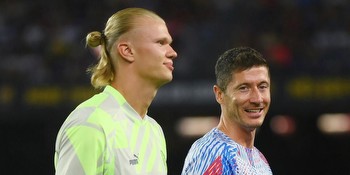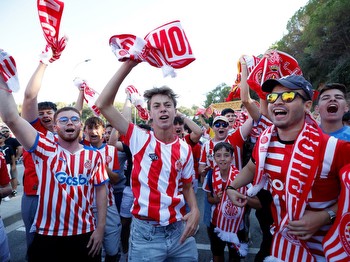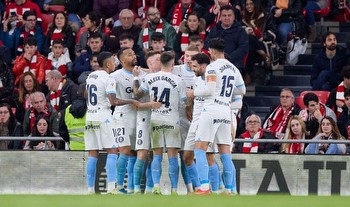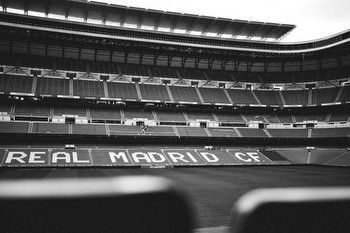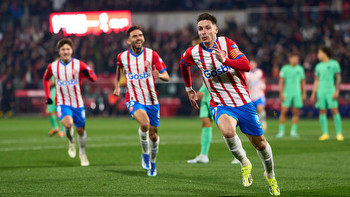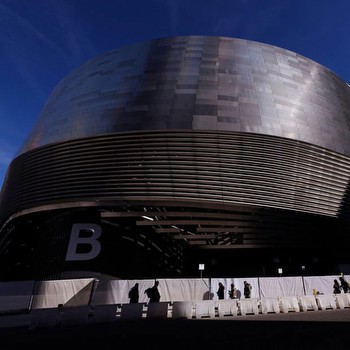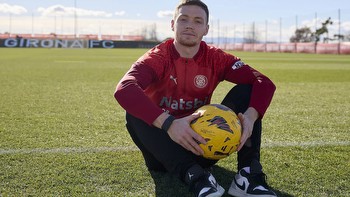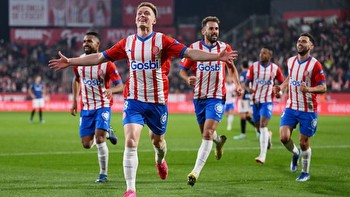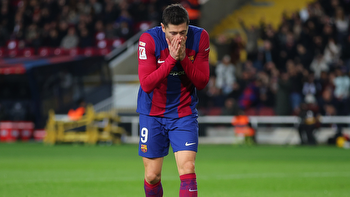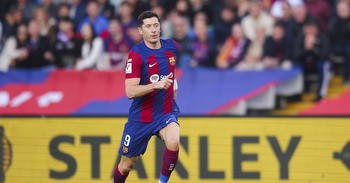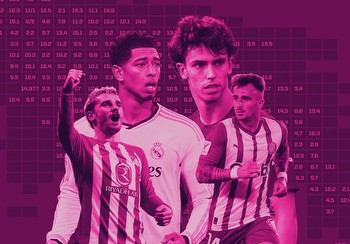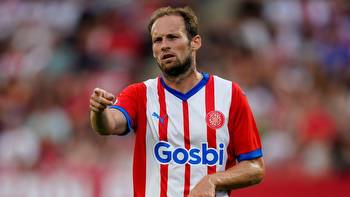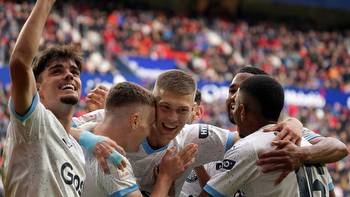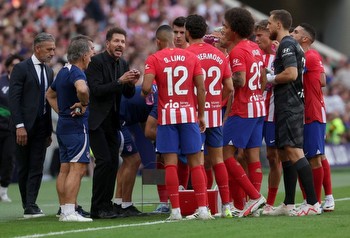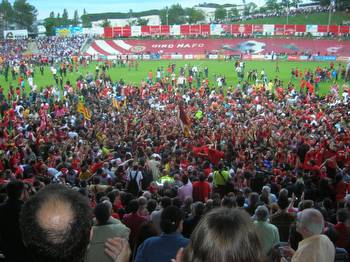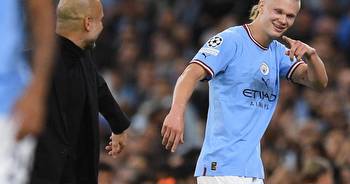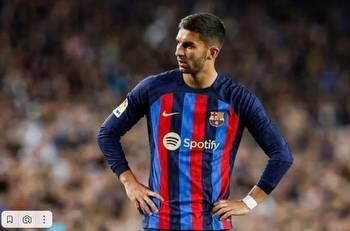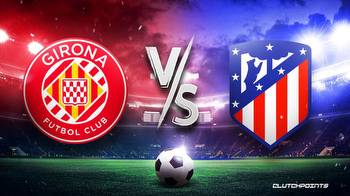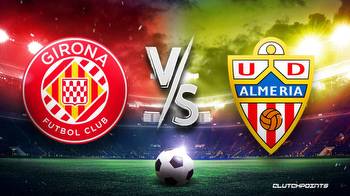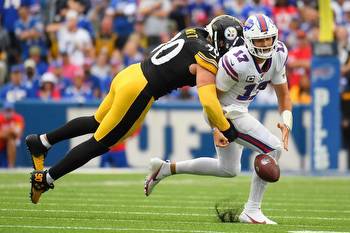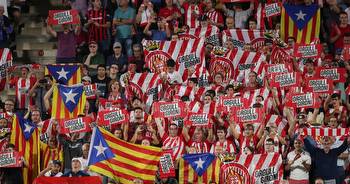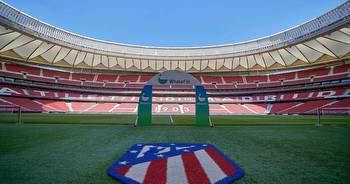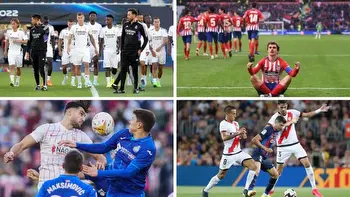Girona Winning La Liga Would Be Amazing, But Not A Perfect Fairytale
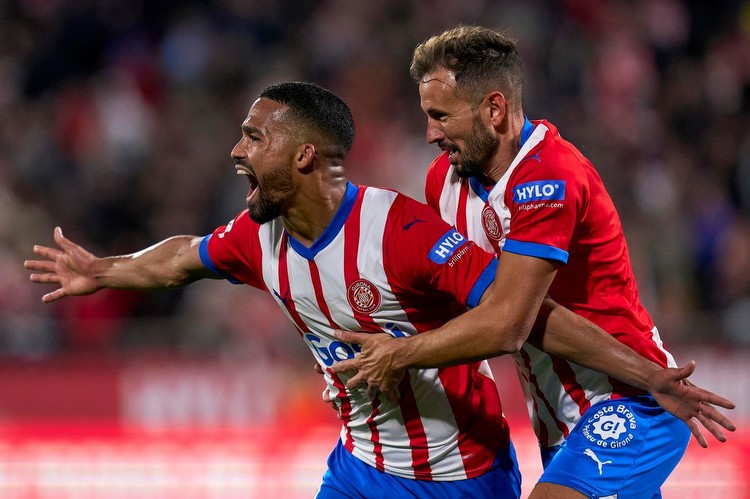 You'll be asked to sign into your Forbes account.
You'll be asked to sign into your Forbes account.Every time a goal crashes in, and there have been 15 at home this season, the Girona fans clustered behind the net inside the Estadi Montilivi in Spain’s Catalunya region must feel as baffled as they are ecstatic—like this is all one mad dream.
To some extent, it is. Such things don’t happen to clubs like Girona. Atop the La Liga table, it has the lowest capacity stadium—more like a ground—in the league, inferior spending power compared to most top-tier sides and no track record in qualifying for European competition. So, beating Barcelona, Real Madrid, and Atlético Madrid to the country’s biggest prize is an outlandish prospect.
Girona can’t do it. At least, that’s what history tells us. Barça and Real’s dominance is too, well, dominant. Only Atlético and Valencia, with two titles each since 2000, have bitten back this century. Besides the multi-million dollar players, the Clásico rivals have the stamina to become the champion each year. As the cliché goes, winning is sometimes a marathon, not a sprint, and avoiding injuries and a little luck may be telling in Girona’s daring quest to stay the distance.
Unstoppable momentum says there’s no halting this Girona. When the points seem destined to dry up, the victories keep coming, either emphatic or hard-fought. Its squad buys into coach Míchel’s formula and plays an entertaining, fearless soccer style. As such, the team has won high praise and taken up many column inches, especially given the players doing the business were lesser-known faces until recently: Artem Dovbyk, Sávio, Viktor Tsygankov, and Aleix García, among them.
Yet, just how refreshing would Girona becoming Spain’s best, or even making next year’s transformed Champions League, be?
On the one hand, it would impact La Liga’s brand. Barcelona, Real Madrid—and Atlético, somewhat—draw the most global interest, dominate television rights earnings, and are the division’s most valuable soccer entities outright. Having a new winner gives the league a genuine reason to market its product differently. While the division relies on its most famous teams’ pull, and losing out would be a sucker punch to their status, it would counter the idea that annual champions are predictable.
Indeed, there is a romantic element to Girona getting over the line. It’s operating on a €52 million ($57 million) expenditure cap, and its bid does not rest on pricey signings’ shoulders. Its net spend during this term is around €5 million ($5.5 million), and it sold midfield rock Oriol Romeu down the road to Barça.
As for the coach, a Rayo Vallecano man through and through, Míchel’s success is all the more remarkable, considering he’s been through hard times, too—poor runs with Rayo and Huesca, where he achieved promotions before eventually getting the sack. He’s stuck to his ideas. Now it’s all clicking.
Yet there’s more to it. How much praise Girona should earn depends on the but. Girona is performing heroics but has the City Football Group to thank. Or, Girona has the City Football Group to thank but is performing heroics. A subsidiary, the City Football Group, primarily backed by money from the Middle East, controls Manchester City and has a sizeable stake in Girona, too—as does the related Girona Football Group and its chairman Pere Guardiola, City coach Pep Guardiola’s brother.
Manchester City’s success over recent years has coincided with owner Sheikh Mansour and the company. Therefore, it’s easy to see Girona as an extension of the English club’s dominance and the riches from which it has benefitted. The perks are not only centered around superstars, however.
Instead, it’s more the infrastructure in place. City’s owners have invested heavily in facilities and, in Guardiola, hired arguably the most astute manager in world soccer. The team has since become clockwork in how it plays the game—and there are signs this coaching philosophy is spreading to humbler Girona, with easy access to the City Football Group’s player network softening its inability to splash out on expensive recruits.
The landscape stretches further than Girona, with multi-club ownership models emerging across the game entirely. Ineos Group founder and U.K. billionaire Jim Ratcliffe is reportedly close to acquiring a 25% stake in Manchester United, adding to his ownership of French club Nice and expanding his soccer portfolio.
Another Ligue 1 side, Strasbourg, virtually became Chelsea owner Todd Boehly and BlueCo’s property during the summer. Meanwhile, Red Bull’s influence—heading teams in Europe and the United States—has been in motion for some time. As this becomes the norm, there are concerns over the competitive impact and whether such ownership models require some form of regulation moving forward.
And so, even in a lopsided soccer scape where the wealthier forces tend to dominate anyway, Girona’s steep climb may not be quite the classic underdog story—like a Leicester City or Castel di Sangro-type tale. What’s clearer is there’s a blueprint for more sides to grow in stature as ownership and influence spread far and wide. That’s still a fresh dimension, whatever the perception.

